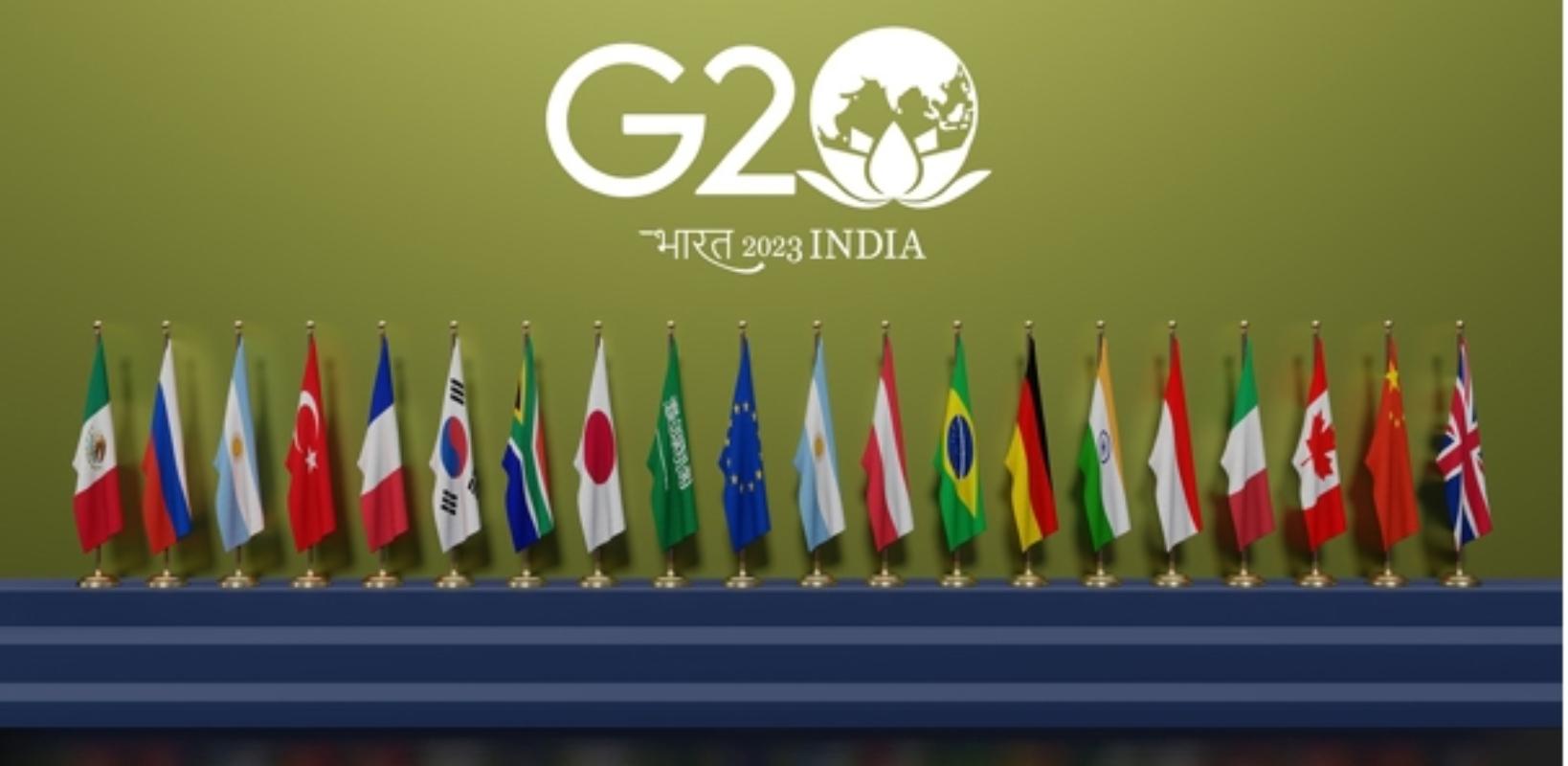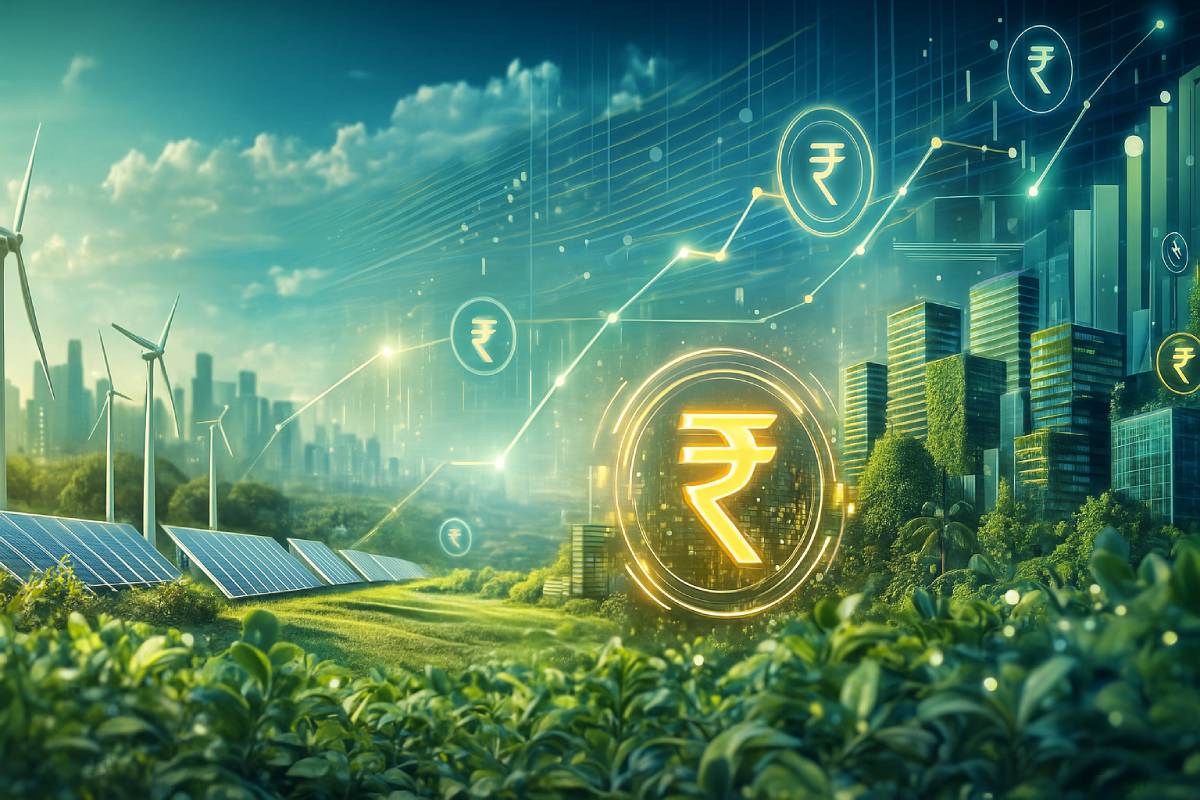Introduction:
In the presidency of India, the G20 summit on the theme of ‘One Earth, One Family, One Future’ was held in New Delhi on 9 and 10 September 2023. The theme of the summit is timely and appropriate in the time of rapidly changing climate, increasing global temperature, increasing climate led disasters and adversely affecting life and livelihoods of each and everyone on this earth. The summit held with big fanfare and hyper media coverage has reportedly spent about Rs. 4,200 core. Prime Minister Mr. Modi has handed over the presidency gavel to Brazil’s president Mr. Lula Da Silva on the second day of the summit to lead the G20 in 2024. After the completion of the summit, it is worth assessing whether the summit and various other G20 ministerial meetings held in 2023 have delivered on the theme ‘One Earth, One Family, One Future’?
This assessment can be done based on the ‘G20 New Delhi Leader’s Declaration’ adopted by members of G20. The sustainability, combating climate and recommitting to achieve sustainable development goals have been given adequate importance in the declaration document. In fact the first declaration addressing concerns related to economic growth has also reflected principles of sustainable, balance and inclusive growth. Following two important developments from the ecological perspective of the G20 summit are the pledge by the United Kingdom to contribute 2 billion USD to Green Climate Fund, which is the highest ever commitment made by any country and inclusion of sustainable lifestyle (LiFE) promoted by India. The declaration has adopted nine high level principles on Lifestyle for Sustainable development finalized by the Development Ministerial Meeting held in Varanasi on June 12, 2023.
Overall, the G20 summit as unanimously adopted declaration has re-asserted commitment of this group to proactively contribute in international cooperation for one earth, one family and one future. The Declaration is full of tall promises in order to collectively combat climate change, re-generate natural wealth, ensure inclusive growth and responsible development. The declaration of G20 leaders in New Delhi is important as these leaders represent 63% of the population of this planet. Moreover, they together generate 78% of Green House Gases.[1] Therefore, the declaration has direct bearing on future climate negotiations including the first global stocktake to be held in COP 28 in UAE in November 2023.
This article is an attempt to briefly corroborate declarations of G20 with the climate change and action taken by parties of UNFCCC including G20 member states.
The New Delhi Leader’s Declaration:
The New Delhi Leader’s Declaration adopted by G20 members unanimously during its summit on 9 and 10 September in India has re-committed their collaborative actions for global economic cooperation by adopting the following 10 declarations.
- Strong, Sustainable, Balanced, and Inclusive Growth:G20 members have renewed their commitment to promote MSME as a tool of growth, involve the private sector as key investment partner, combat corruption and pave the way for a fair and equitable trade framework. The focus has been on sustainable and inclusive growth.
- Accelerating Progress on Sustainable Development Goals (SDGs): The G20 has admitted that the progress of achieving SDGs is off track and only 12 per cent of the DDG targets are on track. It further commits to use the convening power of the G20 to accelerate the process of achieving SDGs on time. Further, the declaration recognizes the intrinsic value of culture as a transformative driver and an enable for the achievement of SDGs. The G20 has committed to call for the full recognition and protection of culture in the endeavour of sustainable global development.
- Green Development Pact for a Sustainable Future:the G20 summit in New Delhi has resolved to “pursue environmentally sustainable and inclusive economic growth and development in an integrated, holistic and balanced manner”. The summit has recognized the drastic impact of climate change on most vulnerable countries such as LDCs and SIDS and reaffirm implementation of objectives of UNFCCC’s Paris Agreement and its temperature goal. The summit has urged all parties of UNFCCC to align their NDCs to the targets of the Paris Agreement. Moreover the declaration has renewed its collective commitment related to climate finance, sustainable lifestyle, circular economy, clean energy, preserving oceans and restoration of ecosystems.
- Multilateral Institutions For The 21st Century:The declaration stresses on the importance of revitalization of multilateralism to adequately address contemporary global challenges of 21st The object behind is to make global governance more representative, effective, transparent and accountable. This is also expected to effectively implement the 2030 agenda of Sustainable Development Goals.
- Technological Transformation and Digital Public Infrastructure:In order to bridge the existing technological divide and use technology to accelerate transformation, the declaration has adopted the proposed G20 framework for System of Digital Public Infrastructure. The declaration has also accepted India’s suggestion to build ‘One Future Alliance’ a voluntary initiative aimed to build capacity, and provide technical assistance and adequate funding support for implementing Digital Public Infrastructure.
- International Taxation: The declaration has reiterated its commitment as G20 to cooperate in the process of building a globally fair, sustainable and modern international tax system appropriate to the needs of the 21st
- Gender Equality and Empowering all Women and Girls:G20 New Delhi declaration has expressed its commitment to build a gender just world order by enhancing investment in women’s development, reducing gap in workforce participation, ensuring equal opportunity in education and eliminating gender based violence including sexual violence.
- Financial Sector Issues:The leader’s declaration in 2023 has reaffirmed the commitment of G20 to effectively implement the next phase of G20 roadmap for enhancing cross-border payment to achieve global targets for faster, cheaper, more transparent and inclusive cross-border payments by 2027.
- Countering Terrorism and Money Laundering:Apart from condemning all forms of terrorism, the leader’s declaration has also expressed concern about illicit trafficking and diversion of small arms and light weapons. The group has felt that global cooperation is highly required to combat it.
- Creating a More Inclusive World: The leader’s declaration in New Delhi has reaffirmed their commitment to support vulnerable groups such as migrants and refugees and promote respect for religious and cultural diversity. Moreover, the declaration has also expressed that it will continue to incorporate perspectives of developing countries in the agenda of G20.
Environment and Sustainability Related Commitments of Delhi Declaration:
The second and third declaration of the New Delhi Leader’s Declaration specify its commitment, vision, approach and action to address global challenges related to climate change, environment degradation, pollution and biodiversity loss. Major commitments and action of G20 in this regards are as follows:
1- Accelerate progress on SDGs with following strategies:
- Recognising the role of digital transformation and endorsing G20 principles on harnessing data for development to impart digital divide.
- Reaffirm commitment towards the mobilisation of affordable, adequate and accessible financing from all sources to support developing countries in their efforts towards Agenda 2030. Also reiterate commitment to take action to scale up sustainable finance in line with the G20 Sustainable Finance Roadmap.
- Recognising the role of tourism and culture as means for sustainable socio-economic development
- Cooperation and partnership to address challenges being faced in the implementation of SDGs.
2- Elimination of Hunger and Malnutrition:
- Encourage efforts to strengthen research cooperation on climate-resilient and nutritious grains such as millets.
- Increasing access to, availability and efficient use of fertilizer and agriculture inputs
- Accelerating innovation and investment focussed on increasing agricultural productivity.
- Support developing countries in their effort to address their food security challenges.
- Efforts to avoid food price volatility.
3- One Health Approach:
- Strengthening primary health care in next 2-3 years
- Promote the One Health based approach driven by the Quadripartite’s One Health Joint Plan of Action (2022-26)
- Support development of climate resilient and low-carbon health systems.
- Implement and prioritise tackling Antimicrobial Resistance (AMR) following the One Health Approach.
4- Quality Education:
- Harness digital technologies to overcome the digital divides for all learners
- Expanding access to high-quality technical and vocational education and training.
- Promote open, equitable and secure scientific collaboration and encourage mobility of students.
- Promoting culture as transformative driver of SDGs
5- Green Development Pact for a Sustainable Future:
- Accelerate actions to address environmental crises and challenges related to climate change.
- Full and effective implementation of the Paris Agreement and its temperature goal.
- Call for aligning of NDC with the temperature goal of the Paris Agreement by the end of 2023.
- Commitment to robust collective actions that will enable the world to embrace sustainable production and consumption pattern and mainstream Lifestyle for Sustainable Development (LiFE)
- Promote a global circular economy by decoupling economic growth from environmental degradation and enhance sustainable consumption and production.
6- Clean, Sustainable, Just, Affordable and Inclusive Energy Transitions:
- Maintaining uninterrupted flows of energy from various sources.
- Facilitating low-cost financing to developing countries in their endeavour of transition to low carbon/ emission.
- Support and accelerate development of transparent and resilient global markets for hydrogen produced from zero and low emission technologies.
- Pursue efforts to triple renewable energy capacity globally by 2030.
- Setting up of a Global Biofuels Alliance
- Support reliable, diversified, sustainable and responsible supply chains for energy transitions.
- Phase-out and rationalise inefficient fossil fuel subsidies.
7- Climate and Sustainable Finance:
- Scaling up blended finance (public and private) and risk sharing facilities.
- Call for a second replenishment process of the Green Climate Fund for its upcoming 2024-27 programming period.
- Call for reporting on progress made in the implementation of the G20 Sustainable Finance Roadmap.
- Commit to work towards implementation of the decision at COP27 on funding arrangement for responding to loss and damage.
- Call on Parties to set an ambitious, transparent and trackable New Collective Quantified Goal of climate finance in 2024.
8- Conservation, Protection, Restoration and Sustainable use of Ecosystems:
- Commit to the swift, full and effective implementation of the Kunming-Montreal Global Biodiversity Framework (GBF).
- Work towards reducing land degradation by 50 percent by 2040.
- Mobilization new and additional finance for forests from all sources including concessional and innovative financing.
9- Commit to conserve, protect, restore and sustainable use of the world’s ocean, marine ecosystems.
10- Promoting mobilisation of finances and efficient use of existing resources in efforts to make the cities of tomorrow inclusive, resilient and sustainable.
11- Commitment to abide with the Sendai Framework for Disaster Risk Reduction to reduce disaster risk and building resilient infrastructure
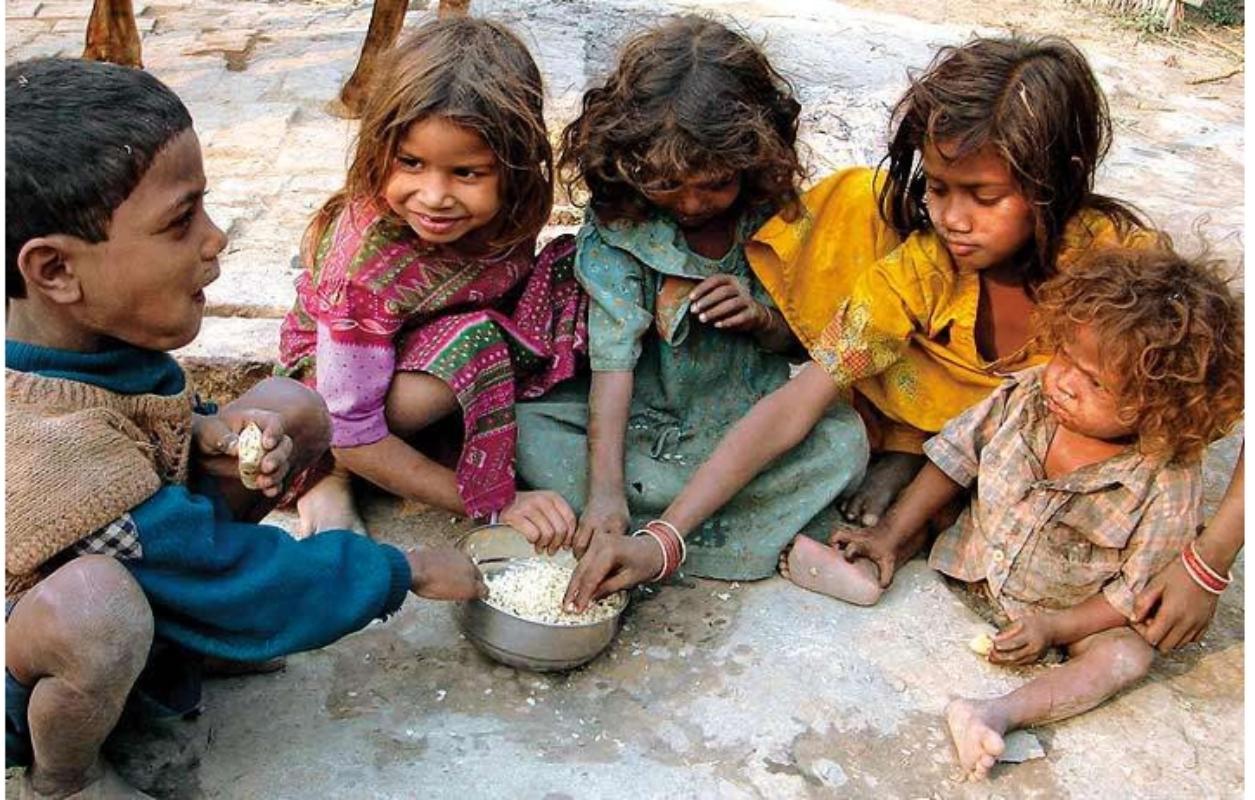
How is the New Delhi Declaration Different?
Leader’s declaration of G20 Summits expresses the vision of G20 members for international economic cooperation. It also lays out a shared perspective, methodology, approach and mission to achieve its objectives. Every G20 summit brings out a declaration and from 2009 till now the G20 has held 15 summits and also released 15 leader’s declarations. Green and sustainable growth has been an integral part of G20 since its inception. The London Summit of G20 in 2009 recognized the economic crises and pledged for fair and sustainable and green recovery for all.[2] These declarations evolved over a period of time by integrating leaders’ declarations with other major international commitments, cooperation and alliances such as UNO, UNFCCC, Millennium Development Goals, Sustainable Development Goals ,WTO to name a few.
A quick look at the last five declarations of G20 reveals that in every summit, members of G20 reaffirmed their commitments to the various other international alliances such as reviving of biodiversity, climate change, clean energy, disasters, climate financing, pollution, sustainable development goals and national determined commitments (NDCs). Leaders’ declarations have also observed a shift from pure economic discussion in the beginning to deliberation on a number of contemporary social, ecological, political and economic issues faced by the world. Discussions and decisions in other multilateral forums such as UNFCCC, CBD, UNCCD and WTO have gradually influenced the G20 declarations, where the G20 have supported and reaffirmed their commitment to such important multilateral decisions and deliberations.
The Delhi Declaration of 2023 has also deliberated on all issues deliberated by previous G20 summits. From the environment and sustainability perspective the Delhi, Bali and Rome declarations in 2023, 2022 and 2021 are more elaborated. The Delhi declaration has comprehensively touched issues such as sustainable and resilient global value chain, accelerating the process of SDGs, sustainable climate finance, one health, NDCs, global temperature targets, lifestyle for sustainable development, clean energy, technological transformation, biodiversity restoration, ocean biodiversity, plastic pollution and disasters.
Most environmental and sustainability related issues deliberated and expressed through the Delhi Declaration were also discussed in Bali and Rome declaration. However, the Delhi declaration has been important in terms of recognition of some initiatives taken by India as G20 president. These initiatives include Global Bio Fuels Alliance and Resource Efficiency and Circular Economy Industry Coalition (RECEIC).
Furthermore the Delhi declaration has taken the discussion on the potential of culture as a transformation driver of SDG discussed in Bali[3] and Rome[4] as well to a step upwards. The Declaration has called for inclusion of culture as a separate goal in possible discussions post Agenda 2030.
The development of the concept ‘Lifestyle for Sustainable Development’ used in the Bali Summit of G20 in 2022 has been expanded and defined adequately in the Delhi Declaration document. The declaration has adopted 9 high level principles finalized by the Development Ministerial Meetings held in Varanasi on June 12, 2023[5]. The declaration has also recognized the ability of ‘Lifestyle for Sustainable Development’ (LiFE) in significant reduction in emission.
Another significant outcome of the Delhi summit is to triple the global renewable energy capacity by 2030. The declaration has not provided any clear action plan to do it, but it has shown an interest in pursuing and encouraging the effort to achieve it. According to an estimate the current total installed renewable energy capacity of the world is 3400 GW. The G20 declaration has an ambitious goal to increase it by 10,200 GW in the next seven years.[6]
Overall, G20 declarations have evolved over a period of time and they diversified their discussions from mere core economic issues to other contemporary social, environmental, climate, political and cultural issues. Often these declarations are repetitive in nature but are well embedded in other progressive multilateral discussions, conventions and commitments.
How Ecologically Responsible is G20?
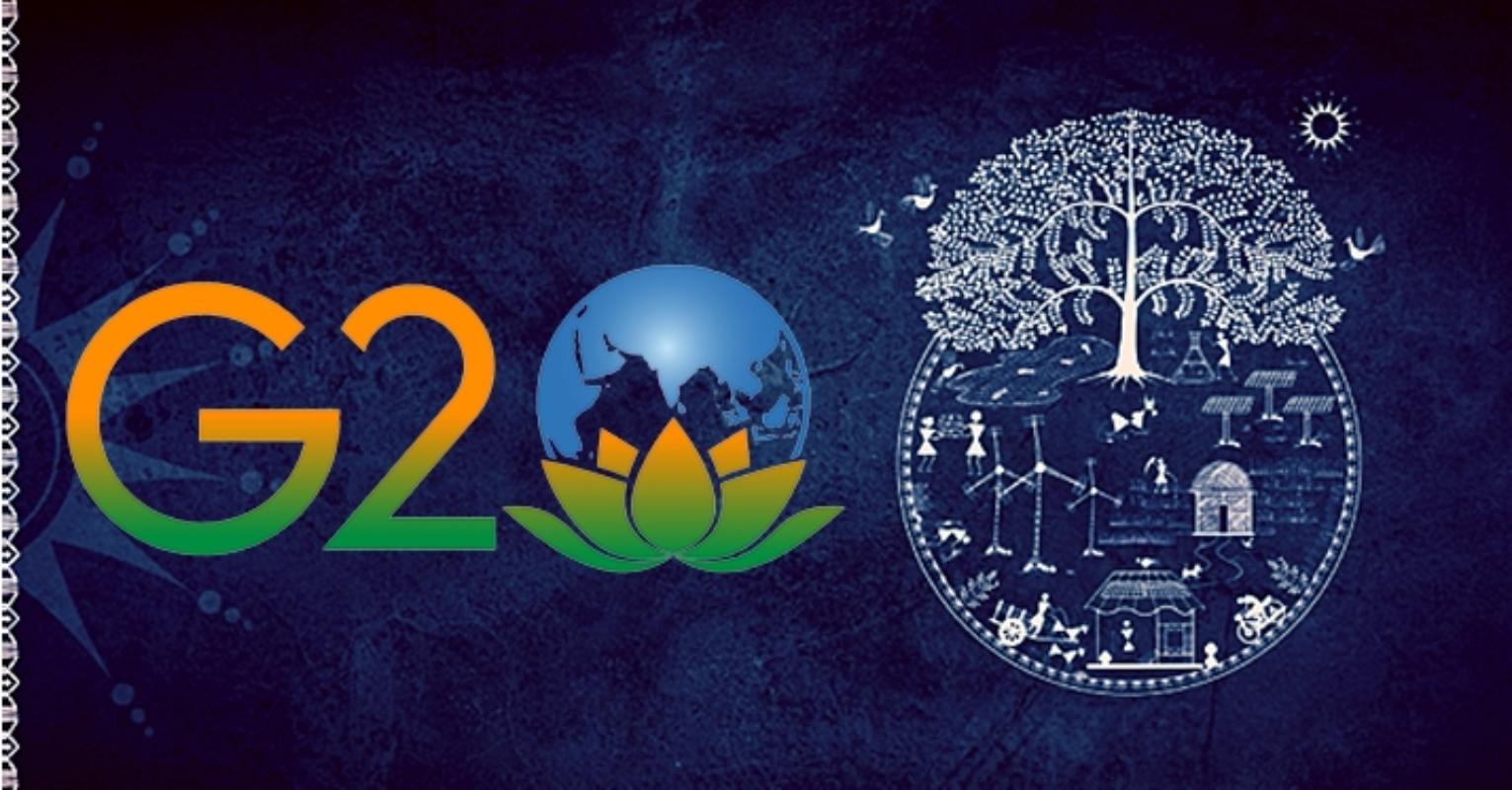
Successive Leaders’ Declaration including Delhi Declaration of G20 have reaffirmed commitments of member nations to meet SDG targets, biodiversity goals, UNFCCC temperature targets, Nationally Determined Contributions (NDCs) and contributing adequately in climate finance along with a number of other environmental conventions and pledges. The latest declaration has also expressed each of these commitments in detail and pledged to support and proactively contribute in achieving these global targets. A repetitive reaffirmation by G20 through Leader’s Declaration is important and can substantially help in achieving these goals. G20 nations account for more than 80 per cent of global GDP and 75 per cent of global trade. With such concentration of wealth and production in these countries they generate around 78 percent of global Green House Gases (GHG)[7].
Often these Leaders’ Declaration is unanimously adopted in G20 summits. Therefore, an honest effort towards global climate change and environment commitments by G20 can significantly help in on time realization of these targets. This will directly help 63% of the global population residing in these countries and also benefit all other remaining populations. The lifestyle for sustainable development is an important area that has been highlighted in the last two declarations. Over consumption in developed countries leads to a serious problem that affects our climate and ecology. A study conducted by ORF in February 2023 found that the per capita energy consumption of all developed countries in G20 is high compared to threshold level.
Another assessment released by Oxfam International in September 2023 reveals that “G20’s emission reduction targets in the NDCs shows that collectively the G20 are failing to achieve their fair share of ambitious global mitigation.” The shortfall calculated using three different methods observed that G20’s collective NDCs range from 2.8 tCO2 eq to 3.9tCO2 eq per capita. According to the report using the CAT assessment tool the collective NDC target of high income G20 countries is 7.8 t CO2 eq per capita and likewise NDC target of low income G20 countries is 6.3t CO2 eq per capita. The report suggests that the high income countries will achieve only 3.1 t CO2 eq per capita and low income group countries will achieve 4.0 t CO2 eq per capita by 2030. The net shortfall for high and low income group G20 countries is 4.7 and 2.3 t CO2 eq per capita respectively[8].
The promises reiterated by G20 through its successive declaration require financial resources. The Paris agreement in 2009 had set a target of mobilizing 100 billion USD per year by 2020. However, the actual cost of achieving NDC varies from country to country. An assessment by the Asian Development Bank Institute in 2022 reveals that six G20 developing countries including India, China, Indonesia, Brazil, Mexico and Turkey have an estimated requirement of 16.71 trillion USD to achieve their respective NDCs between 2015 and 2030[9]. India has an estimated requirement of 7.24 trillion USD and China had estimated 8.42 trillion USD from 2015 to 2030. The international climate finance is insignificant in comparison to the actual requirement of various countries. The same study of the ABDI reveals that till 2022 only 4.94 trillion USD could be mobilized by these developing G20 countries for climate change mitigation and adaptation projects from international financial mechanisms.
The promise to triple the global renewable energy capacity in the next seven year is an ambitious target but achievable. The G20 countries account for nearly 86% of the global installed renewable energy capacity. In the last eight years from 2014 to 2022 the installed capacity of renewable energy in G20 countries has increased from 1385 GW to 2890 GW. An exceptional jump of more than 6 fold growth was observed in installation of solar energy. It grew from 176GW in 2014 to 1047 GW in 2022[10]. Overall, the total installed capacity of all forms of renewable energy in G20 countries has increased slightly more than 2 times in these eight years. Favourable policy level push, sharing of technology and mobilizing finance in cooperative manner as committed by G20 countries can help in tripling the renewable energy capacity by 2030.
What Experts have to Say
The G20 summit and its New Delhi Leader’s declaration have been appreciated as a diplomatic win by a number of institutions, media and leaders. Moreover, many institutions across the globe have also appreciated the selected steps taken by the G20 in New Delhi. The UN Secretary General Antonio Guterres welcomed the declaration’s language about accelerating progress towards the sustainable development goals (SDGs).[11] The Green Climate Fund has welcomed the announcement made by the UK Prime Minister Mr. Rishi Sunak in the G20 summit to pledge 2 billion USD for second replenishment of the Green Climate Fund.[12] The International Renewable Energy Agency (IREA) has also expressed appreciation for accepting and accommodating their recommendation of increasing global installed capacity of renewable energy by 2030 in the Leader’s Declaration.[13] These segmented and issue specific successes acclaimed by G20 member countries and other stakeholders have been further analyzed by many subject experts and global policy think tanks to understand their cumulative impact on accelerating global effort to address challenges related to climate change, SDGs, carbon footprints and temperature target. Some of these critical analyses of the New Delhi Leader’s Declaration are briefly described in following paragraphs.
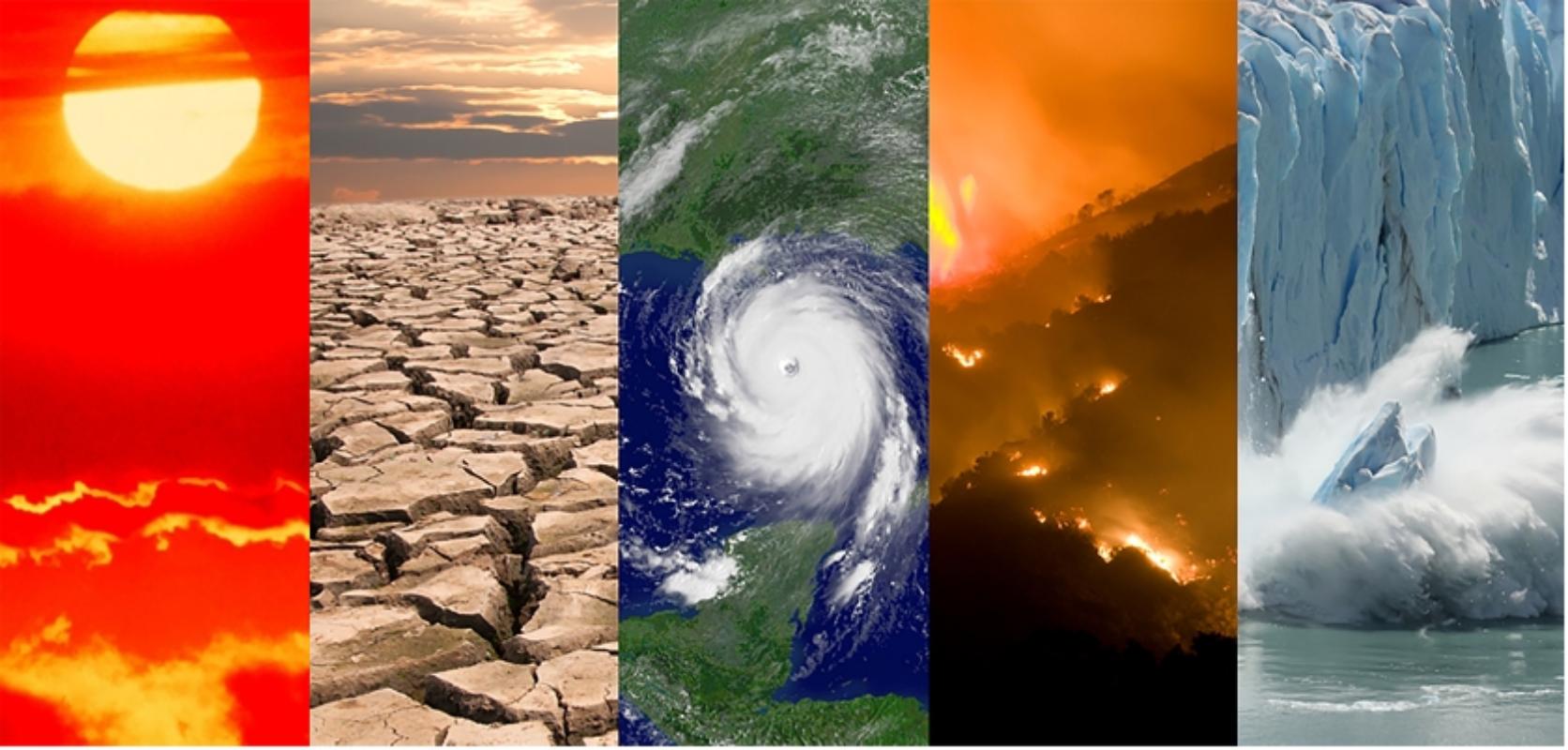
In an article published by the Wire, economist and academician Prof. Arun Kumar argues that G20 nations are landlords of the world and they represent the economic and political interest of their elites. He further pointed out that the consensus on the New Delhi Leader’s Declaration is good diplomatic success but in terms of substance the declaration document is highly ambiguous. The document has not stated any concrete action on major global issues such as climate change, SDGs and poverty alleviations. He concludes that the declaration is full of lofty slogans with no substitute. He observed that the declaration is nicely presented in progressive language to hide the real intent of the landlords. For example the commitments related to climate change and SDGs are high sounding but despite ever increasing extreme weather events, rapid aggravation of poverty and distress of marginalization no concrete step has been taken by the group.[14]
The Down to Earth in its report compared the text of Delhi Declaration and Global Stock Take (GST) report released just before the summit in Delhi. The report observes that the GST report has clearly reported that we need to reduce emission by 43 per cent by 2030 to keep temperature rise within 1.5 degree Celsius. It further observed that countries are falling well short of meeting climate goals to meet the target by 2030. The declaration has reiterated the concern but failed to adequately reflect it in the declaration. For example, the report of Down to Earth observed that the announcement for strong global support for renewable energy is further diluted by weak language in the outcome section, which raises concern, if it can be achieved at all. The report further argues that there are good signals but more concrete actions are needed. The lack of climate finance is discussed, but it failed to give concrete action plans to provide adequate and accessible climate finance to developing countries.[15]
The Economic and Political Weekly in its editorial of 16th September 2023 observed that the ability of G20 to deliver substantially on major global issues has been declining. The Delhi declaration reflects this trend. The article observed that all steps taken by G20 in Delhi on the issues of poverty, climate change, fiscal policy coordination, digital infrastructure and inclusive growth are significant but incremental. These incremental steps fell far below expectations and actual requirements. The article further highlights the issues of diverging interests of countries from global south and global north in the group, which affected full integration of issues with the overall vision.[16]
The World Resource Institute (WRI, India) has also appreciated the diplomatic success of building consensus on declaration documents. It has also appreciated the right direction of decisions and significant steps taken on issues pertinent to environment and climate change. However, it has also observed that these steps taken by the G20 are insufficient given the sheer scale of the climate and development challenges. The WRI has called for large scale, concrete and dramatic actions on climate change.[17]
Creon Butler of Chatham House (a global policy think tank) appreciated some positive outcomes of the Delhi declaration such as leveraging more finances from international banks and extending strong support to WTO. He further observed that the outcome of the G20 summit fell short on issues related to climate change. For example the New Delhi declaration calls for accelerating efforts towards phase down of unabated coal, but it makes no mention of action to reduce use of fossil fuel. Butler further calls for more trust between countries to plan and execute sustainable growth.[18]
The New Delhi Leader’s Declaration has certainly added some new crucial action points in the agenda of the G20. Further it has also touched all important issues on global climate change and environment and reiterated their commitments to accelerate their actions. However, experts have observed that these actions and commitments are insufficient to effectively achieve global commitments related to SDGs, temperature target, emission target and biodiversity on time.
Conclusion:
The G20 theme of the year 2023- ‘One Earth, One Family, One Future’ truly summarizes the symbiotic pattern of life on earth. It further stresses on the fact that fragmented oneness has resulted into all social, political, economic and ecological challenges that we are facing today. The G20 had a great opportunity to effectively deliver on this theme and lead the global community to a more just, equitable, inclusive and sustainable world. The collective action of G20 can significantly transform the world order as they control more than two third of global GDP and trade. Moreover, they also produce more than two thirds of global emission.
The New Delhi declaration has taken few new and ambitious decisions as a group and showed its commitment to pursue and support them at the global level. The formation of biofuel alliance, industry coalition for circular economy, tripling the renewable energy capacity in next seven years and defining principles for Lifestyle for Sustainable Development (LiFE) are few new decisions adopted by the group.
Apart from these new decisions, the declaration has a long list of climate friendly commitments and endorsement to major international conventions on environment, water, forest, climate change, climate finance, pollution and biological diversity. This long list reaffirms international commitments of G20 member countries. On the other hand various reports suggest that most parties to climate change negotiations including G20 members are far behind from achieving set targets. There is an urgent need to identify major bottlenecks and address them collectively so that major goals such as the temperature target of the Paris Agreement, NDCs and SDGs can be achieved on time. The theme of the G20 summit in 2023 was appealing and promising but the G20 New Delhi Leader’s Declaration is no different from previous declarations. All declarations of G20 are rhetoric in nature and the New Delhi declaration follows it.
References:
[1] Oxfam International, 10 September, 2023: https://webassets.oxfamamerica.org/media/documents/Fair_Shares_Discussion_Paper_2023-09-07.pdf?_gl=1*8x5kr*_ga*MTI1NDE0MDE3NS4xNjk0MzMxNTc2*_ga_R58YETD6XK*MTY5NDMzMTU4OC4xLjEuMTY5NDMzMTk0NS42MC4wLjA.
[2] IMF: https://www.imf.org/external/np/sec/pr/2009/pdf/g20_040209.pdf
[3] G20 India website: https://www.g20.org/content/dam/gtwenty/gtwenty_new/about_g20/previous-summit-documents/2022-bali/G20%20Bali%20Leaders%27%20Declaration,%2015-16%20November%202022.pdf
[4] G20 India website: https://www.g20.org/content/dam/gtwenty/about_g20/pdf_leaders_declaration/2021_G20%20Rome%20SummitDECLARATION.pdf
[5] G20 Canada Website: http://www.g20.utoronto.ca/2023/230612-high-level-principles.html
[6] Indian Express, 12 September 2023: https://indianexpress.com/article/world/climate-change/g20-summit-triple-global-renewable-energy-capacity-2030-challenges-8934610/
[7] ORF India: https://www.orfonline.org/wp-content/uploads/2023/02/ORF_OccasionalPaper_391_G20-ClimateIndex.pdf
[8] Oxfam International: https://webassets.oxfamamerica.org/media/documents/Fair_Shares_Discussion_Paper_2023-09-07.pdf?_gl=1*8x5kr*_ga*MTI1NDE0MDE3NS4xNjk0MzMxNTc2*_ga_R58YETD6XK*MTY5NDMzMTU4OC4xLjEuMTY5NDMzMTk0NS42MC4wLjA.
[9] Asian Development Bank: https://www.adb.org/sites/default/files/publication/823021/adbi-policy-brief-financing-climate-targets.pdf
[10] Ministry of New and Renewable Energy: https://mnre.gov.in/img/documents/uploads/file_s-1694512586714.pdf
[11] https://news.un.org/en/story/2023/09/1140547
[12] https://www.greenclimate.fund/news/uk-pledges-record-2-billion-climate-action-funding-gcf-g20
[13] https://www.irena.org/News/pressreleases/2023/Sep/G20-Leaders-Endorse-IRENA-Recommendations-for-Global-Renewable-Energy-Adoption
[14]The Wire, 14th September 2023: https://thewire.in/world/g20s-new-delhi-declaration-serving-the-interest-of-the-global-landlords
[15] Down to Earth, Jayant Basu, 14th September 2023: https://www.downtoearth.org.in/news/governance/market-and-mitigation-dominated-g20-climate-actions-not-a-good-signal-leading-to-cop28-claim-experts-91759
[16] Economic & Political Weekly, EPW, SEPTEMBER 16, 2023 vol. LVIII, No. 37 https://www.epw.in/system/files/pdf/2023_58/37/ED_LVIII_37_160923_Cobbled%20Consensus%20and%20Emerging%20Challenges.pdf
[17] WRI, India, Mr. Madhav Pai, 12th September 2023: https://wri-india.org/blog/g20-highlights-climate-finance-just-transition-and-food-security
[18] Creon Butler, Director, Global Economy and Fiancnce, Chatham House: https://www.chathamhouse.org/2023/09/g20-lives-mistrust-between-west-and-china-hampers-progress

